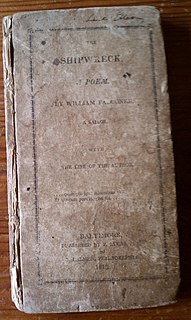A Quote by William Shakespeare
Related Quotes
When you once attribute effects to the will of a personal God, you have let in a lot of little gods and evils - then sprites, fairies, dryads, naiads, witches, ghosts and goblins, for your imagination is reeling, riotous, drunk, afloat on the flotsam of superstition. What you know then doesn't count. You just believe, and the more your believe the more do you plume yourself that fear and faith are superior to science and seeing.
The artist usually sets out -- or used to -- to point a moral and adorn a tale. The tale, however, points the other way, as a rule. Two blankly opposing morals, the artist's and the tale's. Never trust the artist. Trust the tale. The proper functions of a critic is to save the tale from the artist who created it.
When death comes, it's just like winter. We don't say, "There ought not to be winter." That the winter season, when the leaves fall and the snow comes, is some kind of defeat, something which we should hold out against. No. Winter is part of the natural course of events. No winter, no summer. No cold, no heat.
"Are you a storyteller, Thomas Covenant?"
Absently he replied, "I was, once."
"And you gave it up? Ah, that is as sad a tale in three words as any you might have told me. But a life without a tale is like a sea without salt. How do you live?"
"I live."
"Another?" Foamfollower returned. "In two words, a story sadder than the first. Say no more - with one word you will make me weep."







































